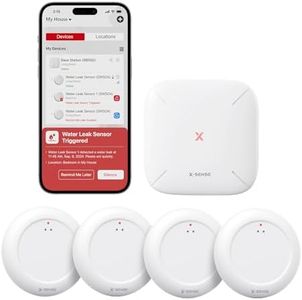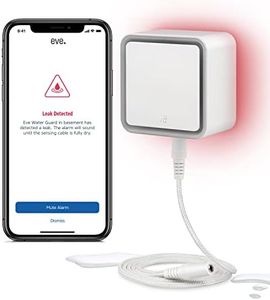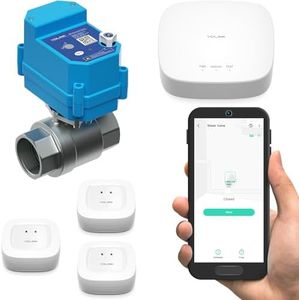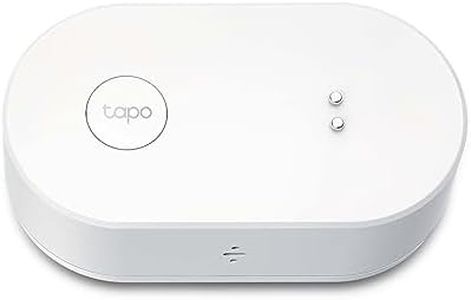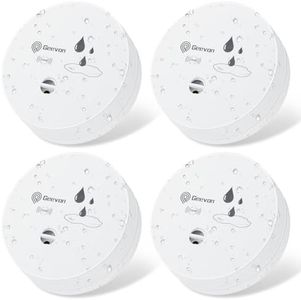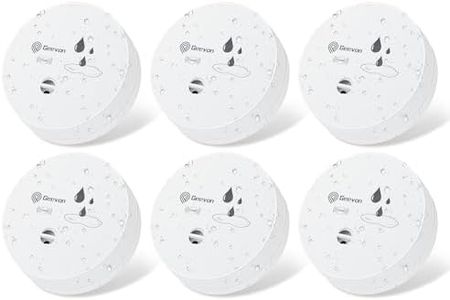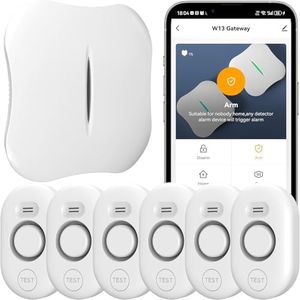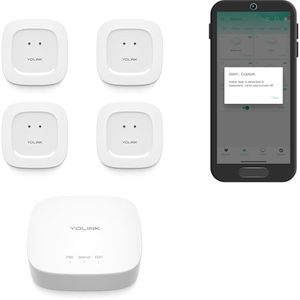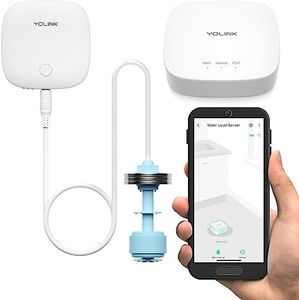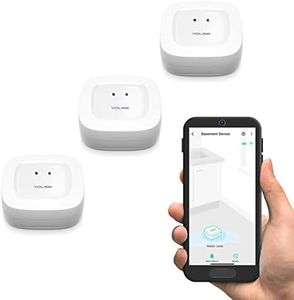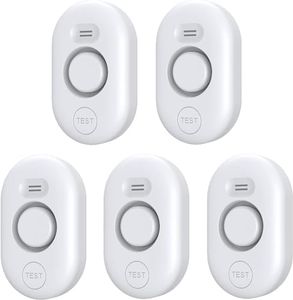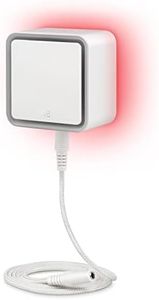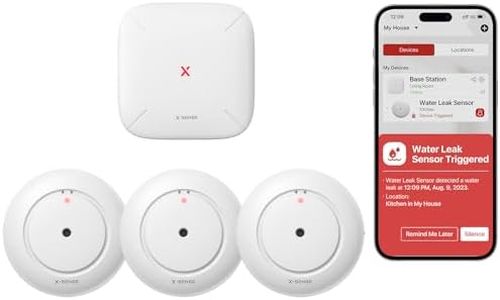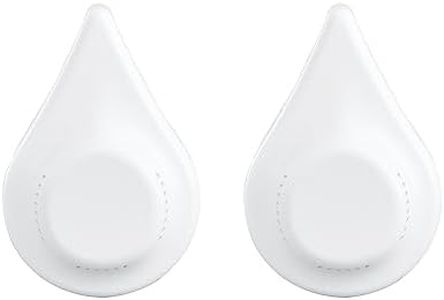We Use CookiesWe use cookies to enhance the security, performance,
functionality and for analytical and promotional activities. By continuing to browse this site you
are agreeing to our privacy policy
10 Best Water Leak Detectors
From leading brands and best sellers available on the web.By clicking on a link to a third party's website, log data is shared with that third party.
Buying Guide for the Best Water Leak Detectors
Water leak detectors are handy devices for preventing serious water damage in your home or business. They work by sensing water where it shouldn’t be, alerting you quickly so you can act before things get worse. Buying the right water leak detector involves considering how you'll use it, where you’ll place it, and what features matter most for your peace of mind.Sensor TypeSensor type refers to the way the device detects the presence of water. Some detectors use metal probes that trigger an alert when water bridges the gap, while others have extended cables or floor mats for wider coverage. Choose compact sensors for tight spaces like under sinks, or cable/mat sensors for areas like basements where leaks might spread. Think about where leaks are most likely in your space—selecting the right sensor type makes detection quick and reliable.
ConnectivityConnectivity determines how the leak detector communicates with you. Options include standalone devices that sound a built-in alarm, Wi-Fi connected units that send alerts to your phone, or smart home-compatible detectors that integrate with broader systems. Basic alarms are fine if you’re usually nearby, but for remote monitoring, choose Wi-Fi or smart home options so you get instant notifications wherever you are. Consider whether you want to pair the device with a wider monitoring or security system.
Power SourcePower source means whether the device uses batteries, is plug-in, or sometimes even hardwired. Battery-powered detectors are easy to place anywhere and are unaffected by power outages, but need periodic battery changes. Plug-in models never need battery swaps, but must be near an outlet. Hardwired options are more permanent and reliable, but usually require professional installation. For most portable or hidden locations, battery models are most flexible.
Alarm LoudnessAlarm loudness refers to how easy it is to hear the detector’s alert when a leak is detected. Alarms are measured in decibels (dB)—the higher the number, the louder the sound. Quieter alarms (under 80 dB) might not be easy to hear from another room, while alarms over 85 dB are usually loud enough to be heard throughout the home. Pick a louder alarm if the detector is placed in distant or noisy areas, but for small apartments or near bedrooms, moderate volume is often sufficient.
Sensitivity and Detection RangeSensitivity and detection range describe how quickly and how much water needs to be present before the device sounds an alarm. Some are extremely sensitive and respond to just a few drops, while others wait until a small puddle forms. Choose higher sensitivity in areas where early warning is critical, like near valuables or electronics. But in places like unfinished basements, less sensitivity may prevent false alarms from condensation or dampness.
Mobile Alerts and App SupportMobile alerts and app support mean the detector can send notifications to your phone via an app, helping you respond to leaks when you’re away from home. Features vary, with some apps offering device status, battery levels, and integration with other smart systems. If you travel often or manage multiple properties, this feature gives extra control and peace of mind. If you’re always at home, app support might be less critical.
Installation and PlacementInstallation and placement refer to how easily the detector can be positioned where needed. Some require tools or have mounting hardware, while others simply rest on the floor. Easy installation is great for renters or frequent movers, while more permanent setups may suit homeowners. Choose what fits your comfort with DIY work and your specific spaces—look for detectors designed for easy repositioning if you expect to change locations often.
